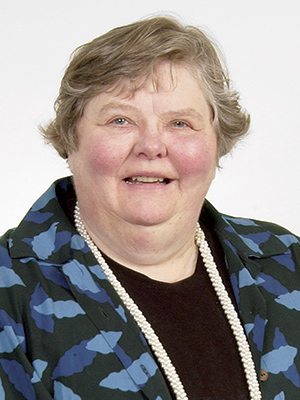Kathryn Barnard, ’72, recognized as a pioneer in infant health
 When nurse Kathryn Barnard, ’72, watched a woman who had been sexually abused withhold eye contact or not even hold her new baby, she realized how vital the caregiver-child relationship was in ensuring a lifelong healthy social and emotional development for children-and how overlooked it was
When nurse Kathryn Barnard, ’72, watched a woman who had been sexually abused withhold eye contact or not even hold her new baby, she realized how vital the caregiver-child relationship was in ensuring a lifelong healthy social and emotional development for children-and how overlooked it was
Coaching mothers on what to do wasn’t the answer any more, she says. “We have to learn how to work with moms at a different level,” Barnard explains.
That realization set her on a path in which she became a pioneer in improving the health of infants and their families. Barnard, the Spence Endowed Professor in the UW School of Nursing, was recognized for her groundbreaking research when she was presented with the 2003 Episteme Award at the Sigma Theta Tau International Convention. The award is considered the equivalent of the Nobel Prize for nursing.
Barnard, who came to the UW in 1963 as a nurse and teacher, pursued a Ph.D. in nursing (which she earned in 1972) to develop her research skills after seeing the impact she had on one family with a Down Syndrome child.
Barnard went on to develop the Feeding and Teaching Scales, a system assessing the behaviors of children and their parents during routine interactions. Her work was considered so important, it was disseminated to more than 17,000 health-care professionals using the Nursing Child Assessment Satellite Training.
Her vision to help traumatized caregivers later gave birth to the Center on Infant and Mental Health Development at the UW in 2001. Opened as a partnership between the UW’s Center on Human Development and Disability and the School of Nursing, the new center offers specialized training for students and health-care professionals.
Although Barnard is 65, a time when many people contemplate retirement, she has no plans to slow down. “My goal is to jump-start infant mental health in the community,” she says, “and get policy developed and resources available in the community.”